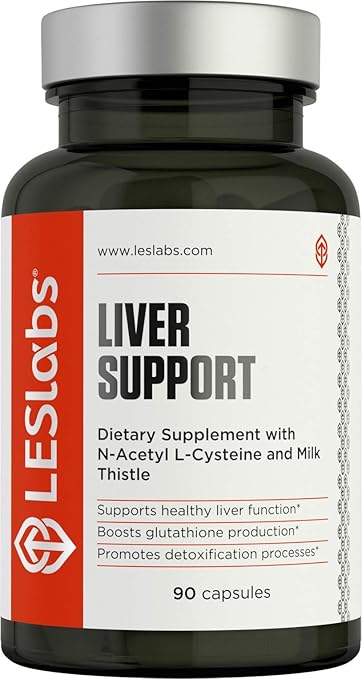
Hepatitis A is a communicable disease of the liver caused by the hepatitis A virus (HAV). It is usually transmitted person-to-person through poor hygiene practices of not the washing of hands after using the bathroom and because of this the disease usually goes through the fecal-oral route or consumption of contaminated food or water.
Hepatitis A disease that does not result in chronic infection. Most adults with hepatitis A have symptoms, including fatigue, low appetite, stomach pain, nausea, and jaundice, light-colored stool dark urine unexplained weight loss that usually resolve within 2 months of infection; most children less than 6 years of age do not have symptoms or have an unrecognized infection.
Antibodies produced in response to hepatitis A infection last for life and protect against reinfection. The best way to prevent hepatitis A infection is to get vaccinated.
(HAV). The disease spreads through contact with an infected person’s stool. You can get it from
- Eating food made by an infected person who did not wash their hands after using the bathroom

- Drinking untreated water or eating food washed in untreated water
- Putting into your mouth a finger or object that came into contact with an infected person’s stool
- Having close contact with an infected person, such as through sex or caring for someone who is ill
There is no known treatment for hepatitis A infection. Because it’s a short-term viral infection that goes away on it’s own, medical intervention is focused on reducing the symptoms.
After a few weeks of rest, the symptoms of hepatitis A usually begin to improve. To ease your symptoms, you should:
- avoid alcohol
- maintain a healthy diet
- drink plenty of water
With rest, and eating and drinking properly your body will most likely recover completely from hepatitis A in a matter of weeks or a few months. Usually, there are no negative long-term consequences of having the virus.
After contracting hepatitis A, your body builds immunity to the disease. A healthy immune system will prevent the disease from developing if you’re exposed to the virus again.
Preventing Hepatitis A
The best way to prevent getting hepatitis A apart from good hygiene practices is by getting the hepatitis A vaccine. This vaccine is given in a series of two injections, 6 to 12 months apart.
If you’re traveling to a country where hepatitis A transmission is more common, get your vaccination at least two weeks before traveling. It usually takes two weeks after the first injection for your body to start building immunity to hepatitis A.
If you’re not traveling for at least a year, it’s best to get both injections before leaving.
Hepatitis B
Hepatitis B is a virus is liver inflammation that is transmitted through bodily fluids by way of blood transfusion sexual activity, dialysis, childbirth tattooing body piercing and needle stick with an infected needle
The virus may also be transmitted by close contact. People who have contracted the HBV virus usually have symptoms like Jaundice (yellowing of the skin and eyes) fatigue, dark urine (tea color) nausea, vomiting, and light-colored stools.
.
Patients with chronic hepatitis B carry the virus for years and usually for life, allowing it to continue to cause inflammation and scarring in the liver. Advanced scarring of the liver is called cirrhosis. If the cirrhosis is severe, it can affect the ability of the liver to function and can lead to liver failure or death.
People who are chronic carriers of HBV are also at risk for liver cancer. For these reasons, scientists have developed medications to help reduce the risk of complications in people who are chronically infected with hepatitis B
In some people the disease goes away, Doctors have no idea why only some the HBV virus carriers experience this and for the others it becomes chronic.
This can lead to a chronic infection of the liver which causes the hardening of the liver. This process will lead to cirrhosis of the liver and some people get liver cancer.
Should anyone be infected with hepatitis B, do not be a blood, plasma, organ, tissue, or sperm donor
Be sure to alert anyone who will become in contact with your bodily fluid like your dentist, doctor or sex partner.
Hepatitis C
Hepatitis C is caused by the HCV virus and usually affects the liver. During the first stage of the infection, the symptoms are usually mild or there are no symptoms. Sometimes there is fever, dark urine, abdominal pain, and yellowish skin. Infected
The hepatitis C virus stays in the liver in about 75 to 85% of those who are infected by the virus.
Hepatitis C becomes chronic after many years of being a carrier and can lead to significant complications
Hepatitis C infection that continues over many years can cause significant complications, such as:
Cirrhosis (the liver becomes scarred) this makes the liver hard to function.
Liver cancer. Cirrhosis can sometimes develop into liver cancer.
Liver Failure or advanced cirrhosis can cause the liver to stop functioning.

Prevention
Protect yourself from hepatitis C infection by taking the following precautions:
- Stop using illicit drugs, particularly if you inject them. If you use illicit drugs, seek help.
- Be cautious about body piercing and tattooing. If you choose to undergo piercing or tattooing, look for a reputable shop. Ask questions beforehand about how the equipment is cleaned. Make sure the employees use sterile needles. If employees won’t answer your questions, look for another shop.
- Practice safer sex. Don’t engage in unprotected sex with multiple partners or with any partner whose health status is uncertain. Sexual transmission between monogamous couples may occur, but the risk is low
Hepatitis D
Hepatitis D occurs only among people who are infected with the Hepatitis B virus. Transmission requires contact with infectious blood.
Those who are at risk of contracting hepatitis D include intravenous drug abusers and people who have received multiple blood transfusions.
Symptoms include abdominal pain, nausea, and fatigue.
There are few treatments specifically for hepatitis D although different regimens may be tried. There is no known cure.
Hepatitis D virus (HDV)) virus that requires hepatitis B virus (HBV) for reproducing.
HDV infection can only occur if the HBV virus is present
Hepatitis D virus is transmitted through contact with the blood or other body fluids of an infected person. Transmission from mother to child is rear.
.
Currently, there is no effective antiviral treatment for hepatitis D.
Hepatitis D infection can be prevented by hepatitis B immunization.
A vaccine against hepatitis B along with being careful in handling bodily fluids is the only method to prevent HDV infection
Hepatitis E
The hepatitis E is a virus that infects the liver it causes the liver to swell up
Hepatitis E usually resolves on its own within four to six weeks. Treatment focuses on supportive care, rehydration, and rest.
The hepatitis E virus is usually transmitted through drinking water contaminated with fecal matter.
Symptoms include jaundice, lack of appetite, and nausea. In rare cases, it may progress to acute liver failure.
Hepatitis E can be dangerous for pregnant women or anyone with weak immune systems
Causes
The hepatitis E virus is caught through eating or drinking something that has been in contact with the stool of someone who has the virus.
Hepatitis E is more common in parts of the world with poor hygiene habits and where is an absence of clean water.
. It happens less often in developed countries where sewage plants kill the virus before it gets into the drinking supply.
You also can get hepatitis E if you eat undercooked meat from infected animals, such as pigs or deer. Less often, you can get the virus from raw shellfish that comes from tainted water.
Symptoms
Symptoms may start between 2-6 weeks and may include
- Mild fever
- Fatigue
- Loss of appetite
- Nauseous
- Throwing up
- Stomach pain
- Tea color urine
- Light-colored poop
- Rash and itching of the skin
- Pain in the joints
- Jaundice of the eyes and skin
Your doctor will use a test of the blood or a stool test to diagnose hepatitis E.
Remember to practice good hygiene in our daily living, wash our hands after using the bathroom, and after coming home from public places.
I have left a video of some easy exercises from Silver Sneakers, try and do them as often as possible
.
.NOTE: This post includes affiliate links, which, if clicked on and a product purchased, I get a small commission (with no increase in cost to you)
Thank you for reading this post and if you have a question or comment, please leave it in the space provided at the end of this post, I will reply and remember to like and share.






